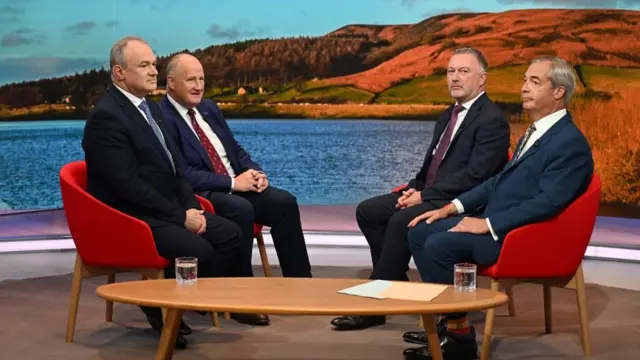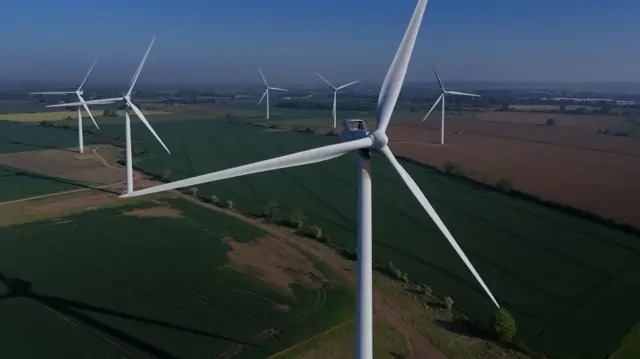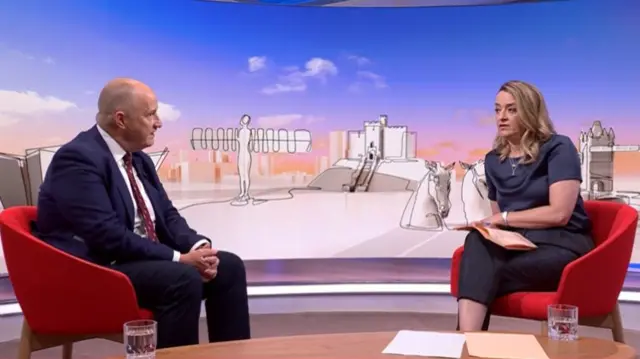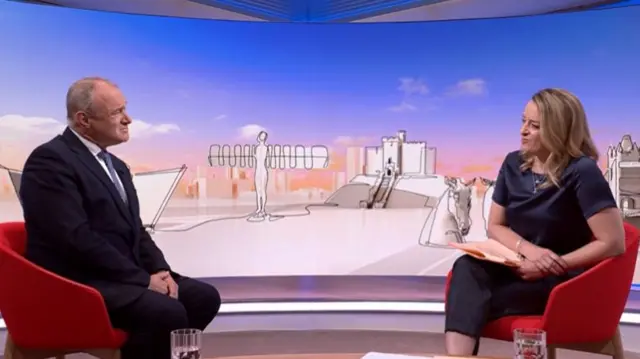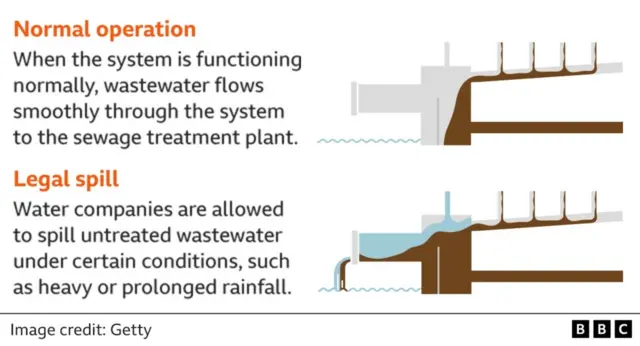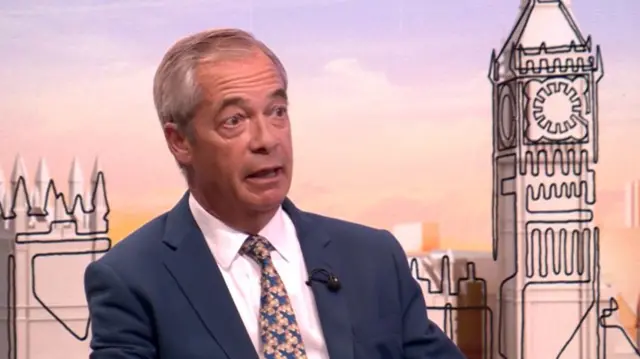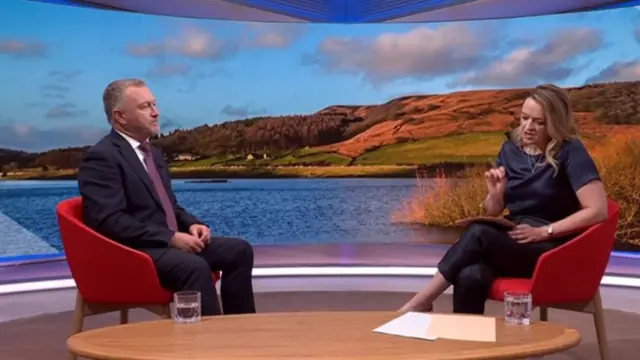We'll see you back again in Septemberpublished at 10:37 BST 20 July
That's it from Sunday with Laura Kuenssberg, at least for now as the show breaks for the summer recess.
But, we'll be back on 7 September, after MPs return to the Commons.
Today, we heard about failures in England's water sector, with the government pledging to halve sewage pollution by 2030. We also heard how the Conservatives, Reform UK and the Liberal Democrats would approach the issue, which you can read more details of in our previous post.
If you find yourself wanting more politics for your Sunday, be sure to check out:

